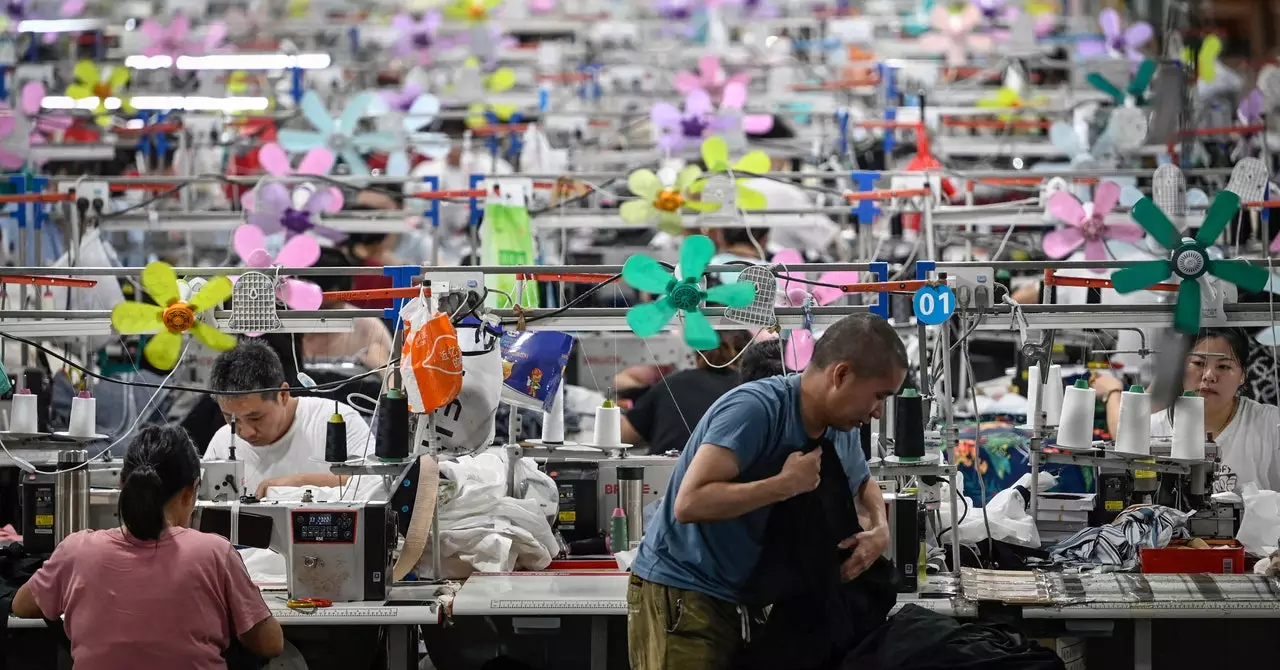In today’s dynamic retail landscape, few names resonate as strongly as Shein, the fast-fashion behemoth that has managed to embed itself into the fabric of contemporary consumer culture. Emerging as a titan in the e-commerce domain, Shein’s rapid ascent to over $30 billion in revenue in 2023 signifies a paradigm shift in how fast fashion operates. Yet, buried beneath this success lies a complex web of environmental concerns and ethical dilemmas tied to its operational practices, with Artificial Intelligence (AI) playing a pivotal yet contentious role.
Shein’s model is characterized by an unrelenting drive for speed and low cost, facilitated by sophisticated AI technologies. The company leverages machine-learning algorithms to analyze vast amounts of data generated by consumer interactions to predict fashion trends almost instantaneously. Each day witnesses the addition of up to 10,000 new items to its platform, catering primarily to Gen Z consumers who are attracted by prices that average around $10. This instant gratification-driven consumption is supported by influencers whose unboxing videos, often titled “#sheinhaul,” have garnered billions of views, further driving the cultural phenomenon surrounding the brand.
However, Shein’s overwhelming reliance on data and AI to churn out products at breakneck speed raises profound questions about sustainability. Critics contend that the very infrastructure supporting this model is architected for rapid growth at the expense of environmental integrity. Executives from sustainability-focused organizations argue that AI enables the industry to transition from fast fashion to what might be termed ‘ultra-fast fashion,’ compounding the sustainability crisis.
Despite Shein’s declarations of intent, such as pledging to reduce its carbon emissions by 25% by 2030, real progress appears elusive. In a stark contradiction, the company’s recent sustainability report indicated a troubling rise in emissions—an increase that was nearly double compared to the previous year. In 2023 alone, Shein emitted a staggering 16.7 million metric tons of carbon dioxide. To put this into perspective, this amount rivals the emissions produced by four coal power plants in a single year, showcasing the dire implications of their business practices on climate change.
The backlash against such revelations has been palpable, as climate advocates point out the inherent contradiction between operating an ultra-fast supply chain and pursuing sustainability goals. While the commitment to achieve net-zero emissions by 2050 is laudable, the feasibility of such targets under current operational models remains questionable. This has led to an overarching sentiment that sustainability promises may appear more as marketing gestures than substantive shifts in corporate ethics.
Beyond emissions, Shein’s operations present additional environmental quandaries, particularly in relation to textile waste and microplastic pollution. The fast-fashion model is synonymous with the throwaway culture, where consumers frequently discard garments after minimal use, thereby exacerbating waste issues. As the textile industry generates copious amounts of refuse, Shein’s relentless production frequency further accelerates this trend—harboring detrimental consequences for landfills and ecosystems alike.
Moreover, the microplastics introduced into the environment through synthetic fibers signify another alarming aspect of Shein’s production processes. As garments break down, these microplastics infiltrate oceans and watersheds, posing risks not only to marine life but also to broader ecological systems and human health. The juxtaposition of cheap clothing prices and profound environmental harm illustrates a failing paradigm that many consumers continue to ignore in their pursuit of fast fashion.
As Shein stands at the forefront of the fast fashion revolution, it brings with it a host of challenges that demand urgent attention. The undeniable power of AI in enabling rapid production must be balanced with ethical considerations regarding labor practices and environmental sustainability. While Shein may thrive on trends and markets, the company—and consumers alike—must confront the environmental costs of such practices.
In this age of climate urgency, consumers are urged to reassess their purchasing habits and demand more transparency from brands like Shein. Only by fostering a culture of responsible consumption can we hope to mitigate the adverse impacts of ultra-fast fashion and pave the way for a more sustainable future in the fashion industry.


Leave a Reply